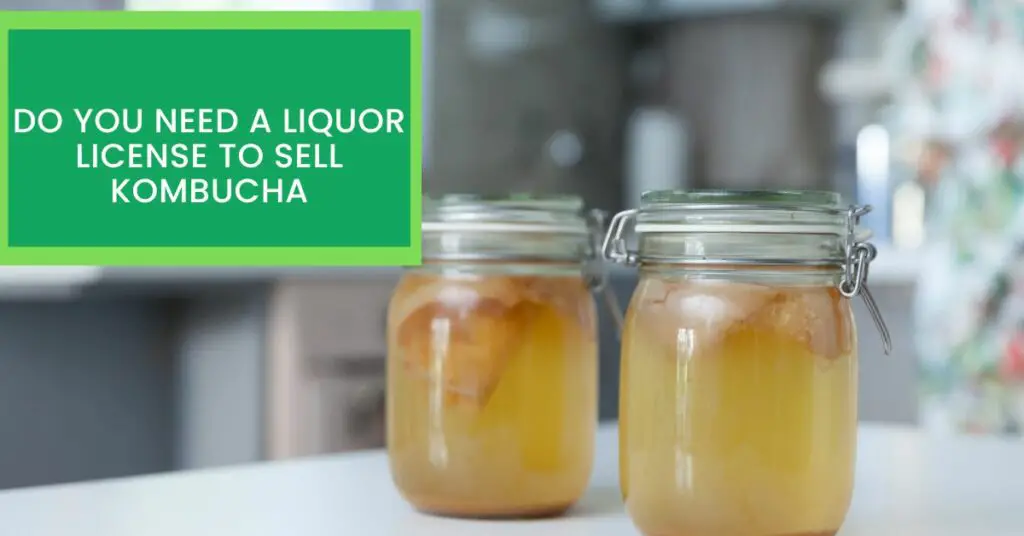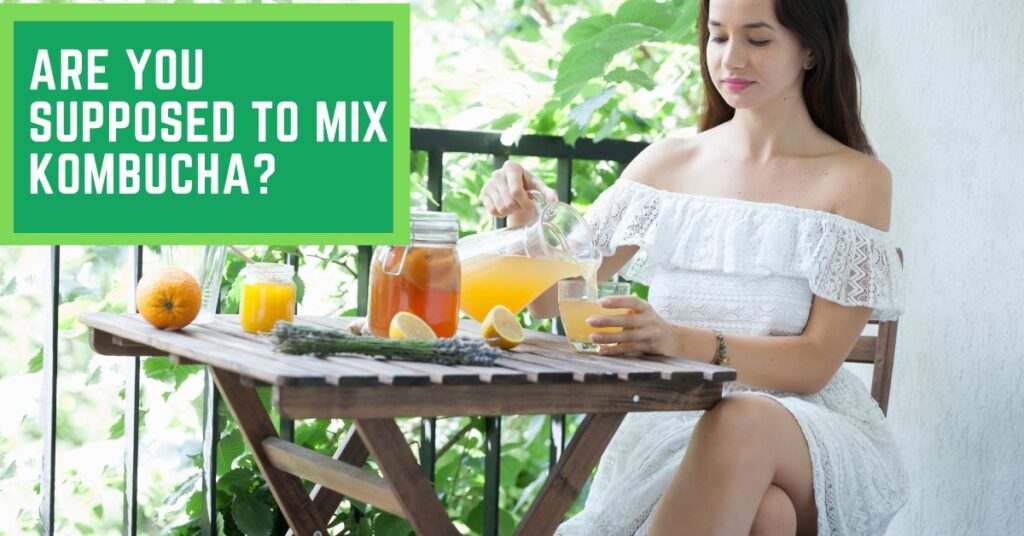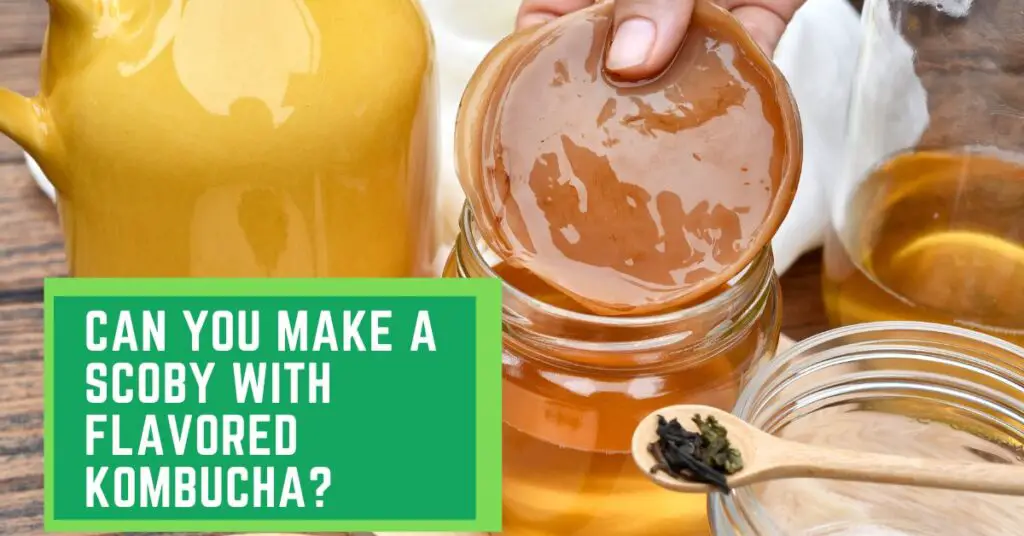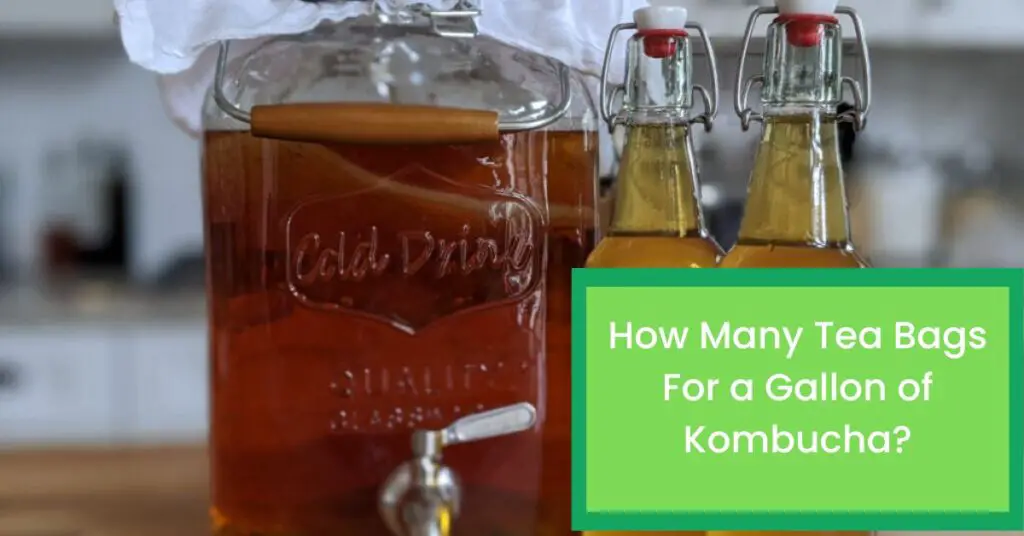If you’ve ever been to a health food store, chances are you’ve seen kombucha for sale. This fermented tea drink has become increasingly popular in recent years due to its purported health benefits.
With the growing interest of people in kombucha, people are thinking about selling their own homemade kombucha. However, the point is they are wondering whether they need a license to sell kombucha.
It’s true that kombucha is a fermented beverage with a small alcohol percentage. However, as long as your product has an alcohol level of 5% or below, you do not worry about getting permission.
In this article, we’ll go over everything you need to know about selling kombucha, including whether or not you need a liquor license.
What is Kombucha?
Kombucha is a fermented tea that has been around for centuries. It is made by adding a colony of bacteria and yeast to sweetened tea. This colony is known as a SCOBY (Symbiotic Colony of Bacteria and Yeast).
The fermentation process produces probiotics, which are beneficial bacteria that help improve gut health. Kombucha is also rich in vitamins and antioxidants.
There are many health benefits associated with drinking kombucha, including improved digestion, immunity, and mental clarity. Some people also find that kombucha helps to detoxify the body and promote healthy skin.
How is Kombucha Made?
Kombucha is a fermented tea that has been enjoyed for centuries. The fermentation process is what gives kombucha its unique flavour and health benefits.
To make kombucha, sweetened black or green tea is first fermented with a symbiotic colony of bacteria and yeast (SCOBY). This SCOBY metabolizes the sugars in the tea, which results in the production of probiotics, vitamins, and enzymes.
After fermentation, the kombucha is bottled and can be enjoyed as is or flavoured with fruits, herbs, or spices.
Kombucha is a refreshing and healthy beverage that is easy to make at home. With just a few simple ingredients, you can enjoy this delicious probiotic drink any time!
How Does Kombucha Become Alcoholic?
Kombucha is a fermented beverage that is made from sweetened black or green tea.
The fermentation process is done by bacteria and yeast, which convert the sugars in the tea into alcohol. However, the final product only has a very small amount of alcohol, usually less than 0.5%.
The fermentation process can be accelerated by adding more sugar to the tea, which will be converted into alcohol.
However, this will also make the kombucha more sweet and less tart. Some people also add fruit juices or other flavouring agents to the kombucha during fermentation, which can also increase the alcohol content.
Kombucha that has a higher alcohol content can be made by using a stronger tea, such as black tea, or by fermenting the kombucha for a longer period of time.
However, it is important to note that the fermentation process will also produce other chemicals, such as acetic acid and carbon dioxide. These can contribute to the taste and smell of the kombucha, so it is important to experiment to find the right balance.
Kombucha can be stored in sealed containers and will continue to ferment, although the rate of fermentation will decrease over time.
This means that the alcohol content of kombucha can increase over time, so it is important to keep an eye on it if you are storing it for a long period of time.
So, that’s how kombucha becomes an alcoholic. The fermentation process is key to making this happen, and by adding more sugar or fermenting for a longer period of time, you can increase the alcohol content of your kombucha. Just be sure to keep an eye on it so that it doesn’t get too strong!
Does TTB Regulate Kombucha?
The TTB does regulate kombucha.
Kombucha is an alcoholic beverage; if the alcohol percentage is above 0.5, anything over that is subject to the Federal Alcohol Administration Act (FAAAct) and TTB regulations.
The Alcohol and Tobacco Tax and Trade Bureau (TTB) requires that all fermented foods containing more than 0.5% alcohol must be labelled as such.
You must have a valid alcohol permit to manufacture kombucha for commercial purposes if you surpass the minimum alcohol level. To get a permit, you must submit an application to the TTB.
Kombucha must also comply with all other applicable TTB regulations, including those related to labelling and advertising.
When Will You Require a Liquor License to Sell Kombucha?
As per the alcohol and tobacco law implemented by Tobacco Tax and Trade Bureau;
“If the alcohol content of kombucha is 0.5% or more by volume, and the alcohol is derived from the fermentation of sugar or another appropriate substitute for malt, it will generally be classified as beer under the IRC and TTB regulations at 27 CFR part 25. For more information on the definition of beer, see 26 U.S.C. 5052(a) and 27 CFR 25.15.”
In such conditions, you will require a license by the law.
How to Measure The Alcohol Content of Kombucha?
The alcohol content of kombucha can be measured using a hydrometer. A hydrometer is a device that is used to determine the density of a liquid. The alcohol content of kombucha is usually between 0.5% and 2.0%. To use a hydrometer, you will need to have a sample of kombucha that is at least 100 ml.
1. Fill a container with the kombucha sample.
2. Place the hydrometer in the container.
3. Wait for the hydrometer to settle.
4. Read the alcohol content from the scale on the hydrometer.
5. Repeat steps 1-4 until you have an accurate reading.
The alcohol content of kombucha can also be measured using a refractometer. A refractometer is a device that measures the amount of light that is bent when it passes through a liquid. The alcohol content of kombucha is usually between 0.5% and 2.0%. To use a refractometer, you will need to have a sample of kombucha that is at least 100 ml.
How to Decrease The Alcohol Percentage of Kombucha?
If you want to decrease the alcohol percentage of your kombucha, there are a few things that you can do.
First, you can make sure that you are using a high-quality tea that is not too strong. This will help to reduce the amount of alcohol that is produced during fermentation.
You can also add less sugar to the tea or ferment the kombucha for a shorter period of time.
Also, remember to add less fruit juice or other flavouring agents, as these can increase the alcohol content.
If you have already fermented the kombucha for a long time, you can try diluting it with water or juice.
Finally, you can try adding a small amount of vinegar to the kombucha, which will help to reduce the alcohol content.
Remember, it is important to experiment to find the right balance that works for you. Kombucha is a healthy beverage that offers many benefits, but it is important to drink it in moderation and to be aware of the potential risks.
Frequently Asked Questions Related to Liquor License For Kombucha
1. Is kombucha regulated by the FDA?
Kombucha is categorized as a specialized process in the FDA Food Code.
This means that kombucha brewers are required to follow specific safety procedures, including obtaining a license from the FDA, to minimize the risk of foodborne illness.
Brewers must also adhere to good manufacturing practices, such as ensuring that their kombucha is made with sanitary equipment and ingredients and is stored and transported under appropriate conditions.
Finally, they must take steps to label their product correctly and warn consumers about potential risks associated with drinking kombucha.
2. Is fermented kombucha alcoholic?
Yes, fermented kombucha is alcoholic. When kombucha is fermented, the sugar in the tea is converted into alcohol by the yeast.
However, the alcohol content of kombucha is usually very low – typically around 0.5% or less. This makes kombucha a non-intoxicating beverage, and you would have to drink a lot of it to get drunk.
Some people do prefer to fermentation process to stop before all the sugar is converted to alcohol, though, as they feel that this makes for a tastier drink.
3. How much kombucha does it take to get drunk?
According to Kombucha Brewers International, the average 12-ounce bottle of kombucha contains 0.5% to 1.5% alcohol by volume.
So, it would take between 24 and 72 ounces of kombucha to get an adult human drunk.
However, it’s important to note that kombucha can vary widely in its alcohol content, so some brands could potentially get you drunk faster than others.





